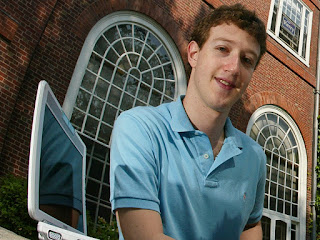If we are talking about ads, my online presence could reveal a lot actually. I am of drinking age, and have shared a few tasteful pictures (I think) with a beer in my hand. I like to travel, and do often, or at least my feed makes it seem so because I post a lot of pictures from the past. I am active, and because of where I work, might be willing to pay an unreasonable amount for supplements (I would not by the way, but the membership price at the gym I work at is pretty hefty). It shows that I am in school and a sorority, which might put me in a clear target market group for girls my age.
I used to have a website/blog that is still active, and has a general biography about me, a video of my college junior voice recital, and some pictures for my portfolio. HOWEVER, early in my college years, I used the blog to post about everything, like a journal, and my emotional journey through college, and I wonder how future employers will see that.
In total I have:
- Two emails
- Twitter (that I haven't used since high school, but has some of my firm political beliefs)
- Snapchat
- TikTok
- YouTube
I mainly have only given my email to shopping sites to receive discounts... although I realize that is a breach of privacy.
There are many times I stop and think that I might want to delete things off of my feed, or become more picky about it. The thing is, I am under the firm belief that once things are on the internet they can not be deleted.
Now, the final, and I think most difficult question to answer. Does social media affect people's mental health? Yes and no. There are studies done by professors at Harvard (linked below), that have proven when a person receives a like or view or positive comment on a post, they receive a small dopamine rush, that can mimic joy. On the other hand, there is the potential of a depressed feeling, or FOMO (fear of missing out) that can occur when someone is not receiving the same amount of attention as others on social media, or they feel like other people's highlight reels are more glamorous than theirs.
I often feel myself getting in a depressive state when I am on social media too much, especially during these quarantine times, where social media is all some of us have to be connected to the real world.
Without social media, we would not be where we are today, or as interconnected as we are to our friends and families across the globe. However... I think after this assignment, I might take a little break. 😅
http://sitn.hms.harvard.edu/flash/2018/dopamine-smartphones-battle-time/
https://www.theatlantic.com/technology/archive/2019/01/facebook-users-still-dont-know-how-facebook-works/580546/
https://www.fastcompany.com/90315706/kids-parents-social-media-sharing
https://www.fastcompany.com/90359992/an-ad-tech-pioneer-on-where-our-data-economy-went-wrong-and-how-to-fix-it





